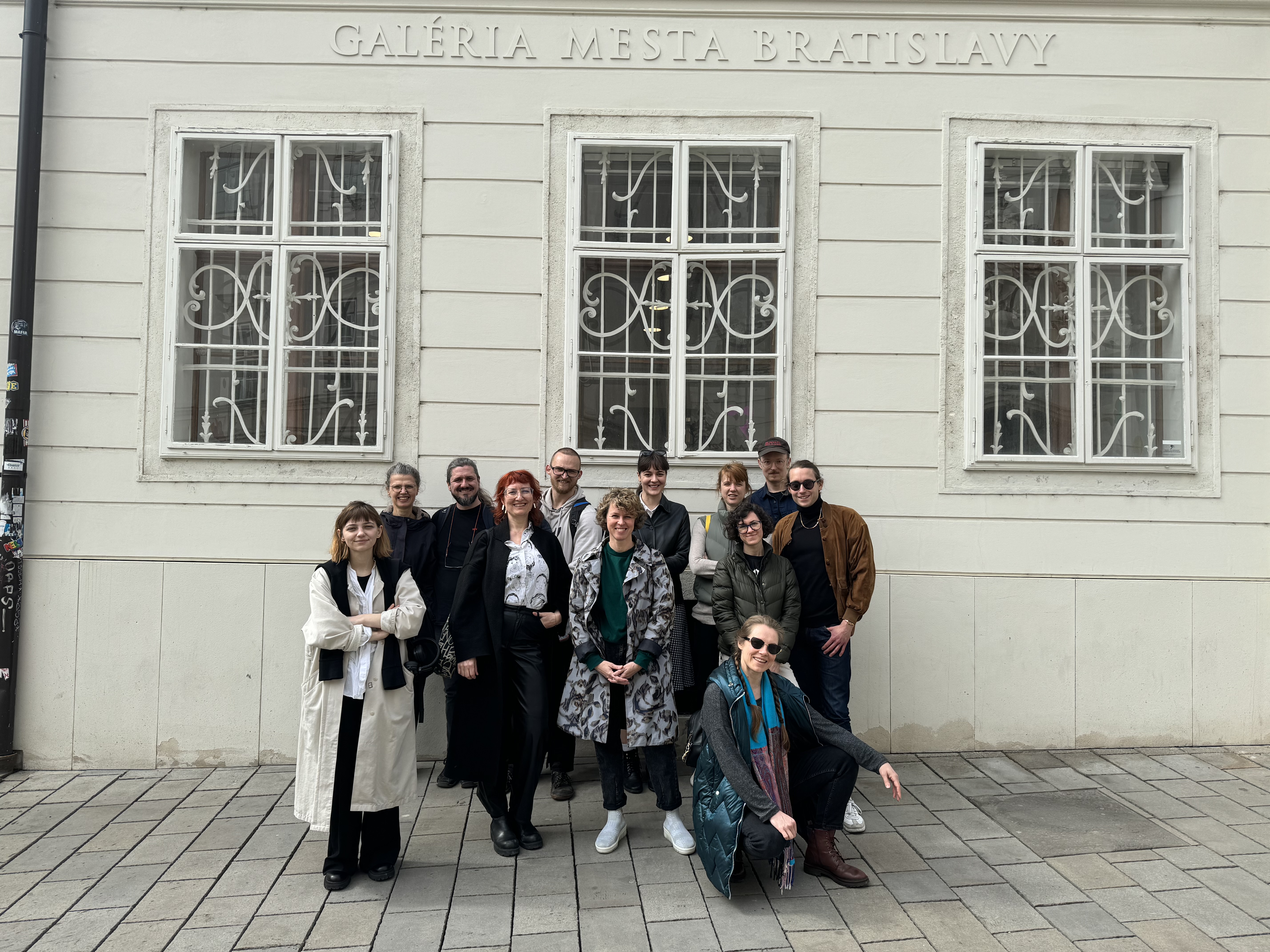
On 23 March 2024, a group of IWM staff members and visiting fellows made their way to Bratislava to see the exhibition Liberated Space: Care – Architecture – Feminism. The trip also provided an opportunity for dialogue with protagonists of Bratislava’s cultural and artistic community, who are currently battling against government plans to curtail the independence of the country’s culture and media institutions.
A person is rolling down the street in a remote Austrian village. The camera captures her slow and winding movements until she disappears from the bottom of the frame after about a minute, leaving the spectator puzzled. The video installation by Austrian performance artist Julischka Stengele, in which she tests the limits of her body and the public space, is one of many artistic interventions forming part of the exhibition currently on display in the City Gallery of Bratislava.
It was curated by IWM Visiting Fellow Petra Hlaváčková together with artist and performer Nicole Sabella. Hlaváčková, an architecture historian, curator, and journalist currently conducting research at the IWM within the framework of the Jan Patočka Fellowship, explains the motives guiding the curatorial process:
“We wanted to show architecture in a different way. By inquiring about how architecture reinforces power structures and providing positive examples of feminist spatial practices, we aim to cast space as political, something we all co-create every day.”
By weaving together issues as disparate as urban planning, gender politics in Socialist Czechoslovakia, and labor migration in the Austro-Slovak border region, the exhibition not only interrogates the multiple inequalities characterizing our lifeworlds and the built environment but also foregrounds questions of (non-) centrality in Central European societies and cultures.
Following a guided tour of the exhibition, the group had the opportunity to exchange with members of the platform Otevřená kultura! (Open Culture!), which has been actively involved in organizing some of the largest anti-government protests in Slovakia’s recent history. In the wake of policy proposals aimed at refashioning the country’s cultural landscape, e.g., by limiting funding for institutions and projects touching on subjects like LGBTQ+, extending political control of public media and public funds, which are the main mechanisms for redistributing public resources for non-established arts and culture, or by carrying out personnel purges in established institutions; Open Culture formed around a petition calling for the Minister of Culture Martina Šimkovičová to resign. Within a matter of weeks, it gathered 180,000 signatures.
So far, the government has remained in office. Should it succeed in pushing through its reform agenda, projects like Liberated Space will likely face substantial backlash, and their makers an even more uncertain and precarious future.

The exhibition Liberated Space: Care – Architecture – Feminism can be viewed in Bratislava’s City Gallery until 28 April 2024.
